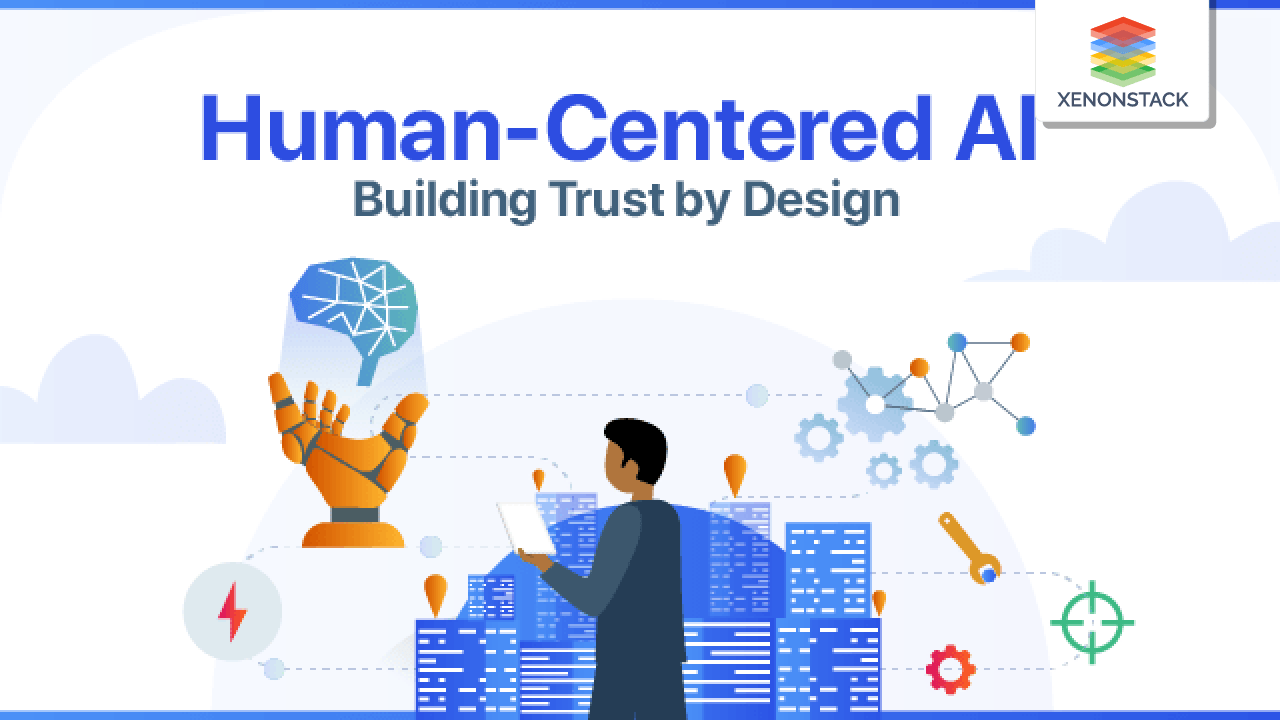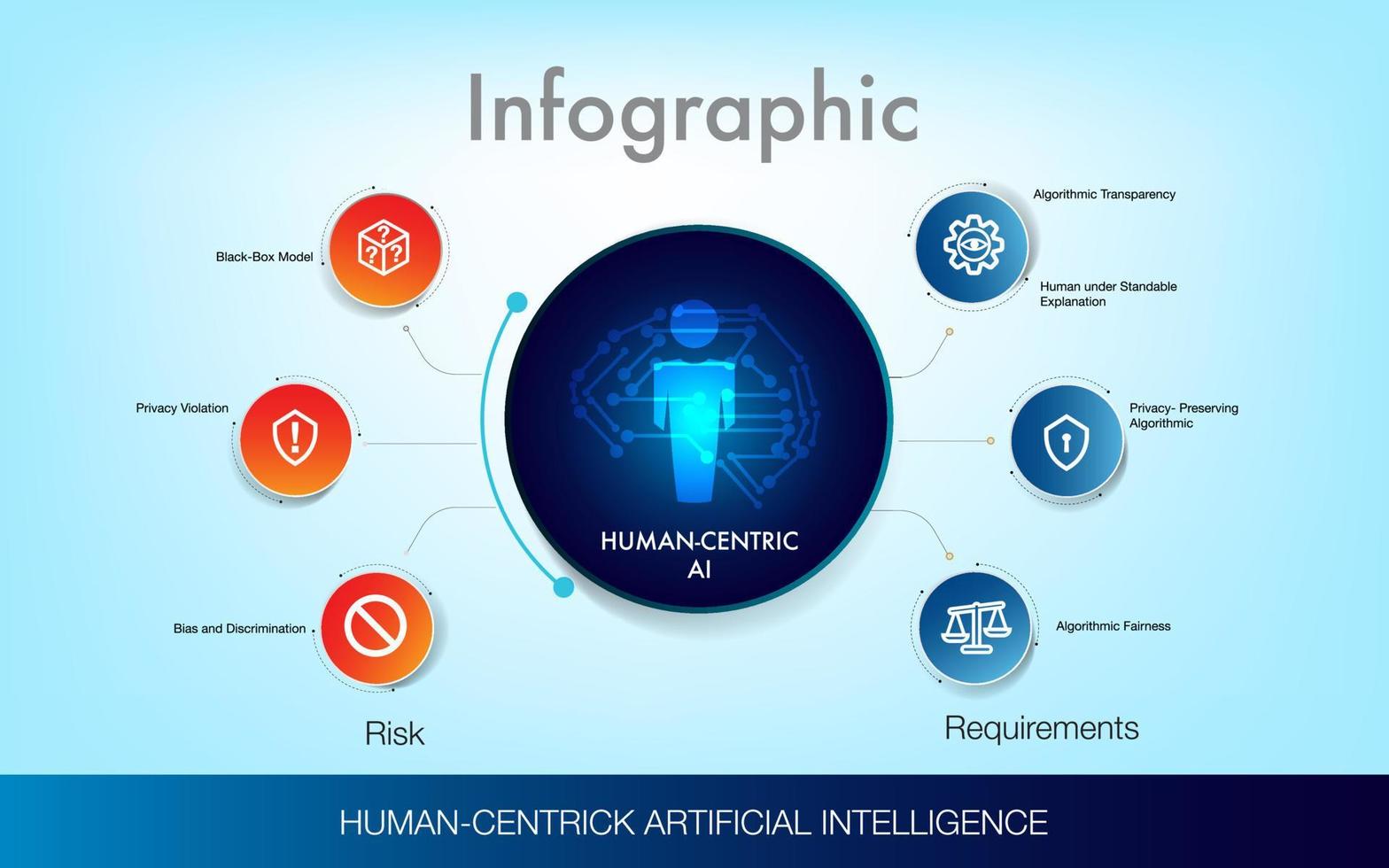Human Centric AI as a Driver for an Extra Inclusive and Understanding Culture
The emphasis has moved towards human-centric AI, which aims to develop systems that focus on inclusivity and compassion. This intro explores the relevance of human-centric AI in boosting inclusivity, fostering empathy, and ultimately offering as a driver for a much more fair and harmonious future.
The Value of Human-Centric AI
The significance of human-centric AI depends on its capability to prioritize the needs and well-being of people, cultivating an extra compassionate and comprehensive society. Traditional AI systems have actually focused mainly on performance and performance, usually overlooking the human component (human centric ai). With the development of human-centric AI, there is a change towards making systems that take into account the distinct requirements and choices of individuals.
By positioning people at the leading edge, human-centric AI intends to produce modern technology that is much more user-friendly, versatile, and receptive. This strategy identifies that AI needs to be a device to enhance human capacities as opposed to replace them. It looks for to encourage people by offering personalized experiences and solutions that deal with their certain scenarios.
Moreover, human-centric AI advertises inclusivity by making sure that innovation is available to all. It deals with issues associated with discrimination, privacy, and bias issues, making AI systems a lot more fair and reasonable. By considering diverse perspectives and engaging with a wide variety of stakeholders, human-centric AI cultivates an extra comprehensive culture where everyone has a chance to take advantage of technical developments.
In addition, human-centric AI fosters empathy by making it possible for makers to react and comprehend to human feelings, needs, and values. It encourages the growth of AI systems that can empathize, communicate, and work together effectively with people, leading to even more meaningful communications and connections.
Enhancing Inclusion With AI Innovation
Enhancing addition with AI technology involves leveraging its capacities to empower and address obstacles marginalized communities. AI can play an essential duty in producing an extra comprehensive society by giving solutions to enduring obstacles dealt with by marginalized teams.
AI can also help in supplying available innovations for people with disabilities. With computer vision and all-natural language handling, AI can allow aesthetically impaired people to navigate their atmosphere much more independently. Voice recognition modern technology can equip individuals with handicaps to communicate with digital devices using voice commands.
Moreover, AI can help identify and deal with biases and discrimination. By examining huge datasets, AI algorithms can recognize patterns of prejudice and discrimination in numerous domains, such as employment and criminal justice. This information can after that be utilized to create plans and interventions that advertise equivalent chances and fair therapy.
Empathy and Comprehending in AI Solutions
Dealing with the demand for compassion and understanding in AI systems is critical for promoting a much more inclusive and compassionate society. As AI comes to be significantly incorporated into our lives, it is crucial that these systems are developed to not only do jobs effectively but likewise to understand and respond to human feelings and demands. Empathy in AI systems can enable them to much better offer individuals with diverse backgrounds, capabilities, and choices, ensuring that their unique viewpoints and needs are considered.
Applying compassion in AI systems involves establishing formulas that can recognize and analyze psychological hints from human communications (human centric ai). This needs training AI designs on vast amounts of data to precisely determine and comprehend emotions expressed through face expressions, tone of voice, and body language. In addition, AI systems require to be configured to react with compassion and concern, Full Article taking right into account the mood of the customer and adjusting their feedbacks appropriately
By including compassion and understanding into AI systems, we can create technology that not just aids with tasks but also sustains and uplifts people. For instance, understanding AI chatbots can give emotional support and advice to those experiencing mental health obstacles. Compassionate AI can assist bridge communication spaces between people with various social histories or language obstacles, fostering understanding and compassion across varied areas.
Conquering Predispositions Through Human-Centric AI
To advertise a much more empathetic and comprehensive society, human-centric AI plays a vital duty in getting rid of prejudices. Bias, whether conscious or subconscious, is a prevalent problem that influences decision-making processes in different domain names, consisting of education, medical care, and employment. By leveraging human-centric AI, we can attend to and alleviate these prejudices, ensuring fair and reasonable end results for all people.

One means that human-centric AI conquers predispositions is through explainability. By providing clear descriptions for its decision-making procedures, AI systems can assist users recognize and challenge biases that may exist in the data or formulas. This encourages individuals to make educated decisions and take proper actions to combat prejudices.
Additionally, human-centric AI makes it possible for tailored experiences that satisfy specific distinctions and preferences. By understanding and adjusting to users' special attributes, AI systems can prevent prejudices that may emerge from generalizations or stereotypes.
Developing a Better Future With AI and Compassion
Human-centric AI, driven by empathy, holds the prospective to shape a future that is more inclusive and caring - human centric ai. As AI technologies remain to advance, there is an enhancing concentrate on integrating compassion into their systems. By incorporating get redirected here compassion, AI can better respond and understand to human feelings, needs, and experiences. This has significant effects for different fields, including customer, education and learning, and medical care service.

In education, AI can assist produce an extra comprehensive understanding setting. Understanding AI systems can adjust to private trainees' learning styles and provide customized recommendations and feedback. This can equip pupils with various capabilities and backgrounds to reach their complete capacity.
Additionally, in customer support, AI with navigate to this website compassion can boost the general individual experience. By recognizing and responding to consumers' emotions, AI can give even more compassionate and tailored assistance, bring about higher client fulfillment and loyalty.
Verdict
In final thought, human-centric AI has the possible to offer as a driver for a more compassionate and comprehensive culture. By prioritizing the requirements and viewpoints of people, AI technology can improve incorporation and conquer predispositions. Including compassion and understanding into AI systems can cultivate a better future by advertising fairness, variety, and level playing fields for all. It is critical that we proceed to develop and execute human-centric AI to develop a much more comprehensive and compassionate culture.
The emphasis has actually moved in the direction of human-centric AI, which aims to produce systems that prioritize inclusivity and compassion. With the development of human-centric AI, there is a shift towards designing systems that take right into account the one-of-a-kind demands and choices of people.
Dealing with the demand for empathy and understanding in AI systems is essential for promoting a much more understanding and comprehensive society. Empathy in AI systems can allow them to far better offer people with varied histories, capabilities, and choices, making sure that their distinct viewpoints and demands are considered.
Human-centric AI, driven by empathy, holds the possible to shape a future that is a lot more comprehensive and thoughtful.